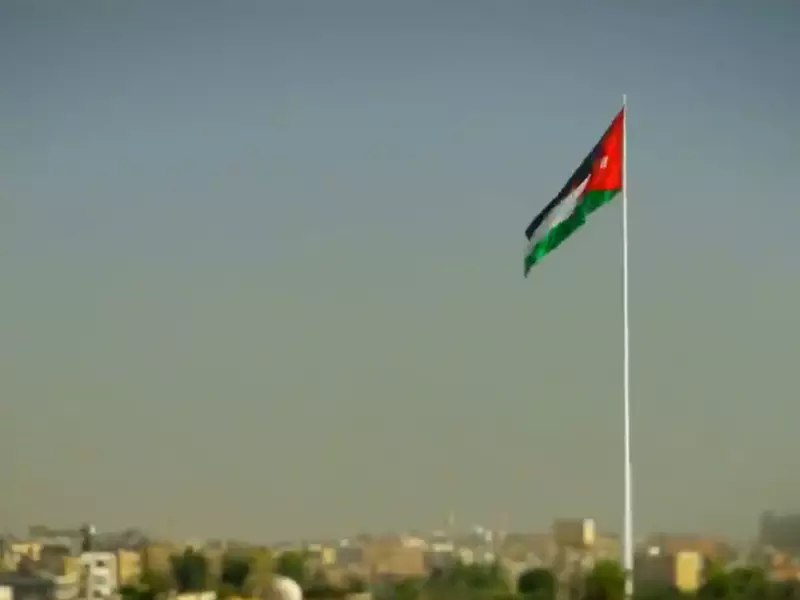The relationship between Jordan and Israel, two neighboring nations in the Middle East, is a complex tapestry woven with political, economic, and cultural threads. These countries share not only a border but also a history that has seen periods of conflict, cooperation, and cautious diplomacy. The nature of their relations is pivotal, influencing regional stability and the broader dynamics of Middle Eastern politics.
The relations between Jordan and Israel are characterized by a formal peace treaty signed in 1994, which ended decades of conflict and laid the foundation for diplomatic relations, security cooperation, and economic ties. This agreement, while not without its challenges, has been a significant milestone in the peace process in the region, establishing a framework for cooperation in various fields including water resources, trade, and tourism.
Despite the formal peace, the relationship between the two countries is nuanced, marked by ups and downs influenced by broader regional conflicts, domestic politics, and international pressures. Both nations have navigated these complexities through diplomatic channels and direct dialogue, striving to maintain stability and address mutual concerns. This intricate relationship underscores the importance of understanding the historical, political, and social factors that shape the interactions between Jordan and Israel.

Historical Context
Formation of Israel
The state of Israel was declared on May 14, 1948, marking the end of the British Mandate for Palestine. This momentous event was met with jubilation by Jews worldwide but also precipitated immediate conflict with neighboring Arab states, including Jordan. The creation of Israel was a pivotal moment in Middle Eastern history, reshaping the geopolitical landscape.
Jordan’s Establishment and Early Stance
Jordan, known as the Hashemite Kingdom of Jordan since its independence in 1946, initially had a complex relationship with the newly established state of Israel. King Abdullah I, Jordan’s ruler at the time, was involved in the 1948 Arab-Israeli War. Jordan controlled the West Bank and East Jerusalem until 1967. The early stance of Jordan was shaped by regional politics and the dynamics of the Arab-Israeli conflict.
Key Agreements
1994 Peace Treaty
The 1994 Peace Treaty between Jordan and Israel was a watershed moment in Middle Eastern diplomacy. This agreement not only formally ended the state of war between the two nations but also laid the groundwork for cooperation in various fields. Key points of the treaty included borders, water sharing, and security cooperation.
Water Sharing Agreements
Water is a scarce and valuable resource in the Middle East. Israel and Jordan signed agreements to share water from the Jordan River and the Yarmouk River, addressing water scarcity and ensuring that both countries could meet their water needs. These agreements are examples of pragmatic cooperation for mutual benefit.
Security Cooperation
Security cooperation has been a cornerstone of the relationship between Jordan and Israel. Both countries share concerns about regional instability, terrorism, and border security. This cooperation includes intelligence sharing and joint training exercises, contributing to the security and stability of the region.
Political Dynamics
Diplomatic Relations
The establishment of diplomatic relations followed the 1994 Peace Treaty. Embassies were opened in each country, symbolizing a new era of cooperation. These diplomatic channels have facilitated dialogue on various issues, including trade, security, and regional politics.
High-Level Visits and Meetings
High-level visits and meetings between Jordanian and Israeli officials underscore the importance of their relationship. These encounters provide opportunities to discuss bilateral issues, regional challenges, and ways to enhance cooperation. Such meetings are vital for maintaining and strengthening the ties between the two countries.
Economic Ties
Trade Agreements
Trade agreements between Jordan and Israel have helped to boost economic ties. These agreements facilitate cross-border trade, allowing both countries to benefit from access to each other’s markets. Trade includes a variety of goods and services, contributing to economic growth and job creation.
Joint Projects and Investments
Joint projects and investments are another aspect of the economic relationship. These projects often focus on sectors such as technology, energy, and tourism. By working together, Jordan and Israel can leverage their resources and expertise for mutual economic benefit.
Security Challenges
Border Security
Border security is a critical concern for both Jordan and Israel. The shared border has been relatively peaceful, thanks to agreements and cooperation between the two countries. Efforts to maintain security include surveillance, patrols, and barriers to prevent illegal crossings and smuggling.
Terrorism and Cooperation
Terrorism is a shared threat that Jordan and Israel face. Cooperation in combating terrorism includes sharing intelligence, joint training exercises, and coordinated responses to threats. This cooperation is essential for the safety and security of both nations and the broader region.

Cultural and Social Exchanges
Educational Initiatives
Jordan and Israel have embarked on educational initiatives to promote understanding and mutual respect among their populations. Programs such as student exchanges and joint academic research projects have helped bridge cultural gaps. These efforts aim to foster a new generation that views their neighbor not through the lens of conflict but as a partner in progress.
People-to-People Connections
Beyond formal agreements, people-to-people connections have been pivotal in cementing the peace process. Initiatives like cross-border cultural festivals, art exhibitions, and sports competitions encourage direct interaction among citizens. Such encounters help in building a foundation of trust and empathy, crucial for long-term peace.
Environmental Cooperation
Joint Conservation Efforts
The environmental challenges facing the region require collaborative solutions. Jordan and Israel have joined forces in conservation efforts to protect shared natural resources. Projects include reforestation initiatives and the protection of biodiversity, showcasing how environmental concerns can transcend political boundaries.
Addressing the Dead Sea Crisis
The Dead Sea, a natural wonder and crucial economic resource for both countries, faces existential threats due to receding water levels. Jordan and Israel are collaborating on projects like the Red Sea-Dead Sea Conduit to address this crisis. These efforts are not only about saving a natural treasure but also about securing water resources for future generations.
Regional Impacts
Influence on Middle East Peace
The peace treaty between Jordan and Israel serves as a beacon of hope in a tumultuous region. It demonstrates that peace agreements can be durable and beneficial for all parties involved. This relationship influences other Arab countries to consider diplomatic ties with Israel, contributing to a broader peace process.
Relations with Other Arab Countries
Jordan’s decision to formalize relations with Israel has had a ripple effect across the Arab world. It has opened doors for dialogue and normalization with other nations, albeit cautiously. This shift is reshaping the Middle East’s geopolitical landscape, fostering a new era of potential cooperation and peace.
Challenges and Controversies
Settlements and Land Disputes
Despite the strides made in peacebuilding, issues like Israeli settlements and land disputes in the West Bank remain contentious. These challenges strain relations not only between Jordan and Israel but also impact the broader Israeli-Palestinian conflict, highlighting the need for a comprehensive and fair resolution.
Jerusalem and Holy Sites
Jerusalem, a city sacred to Jews, Muslims, and Christians, remains a focal point of tension. The status of holy sites, especially the Al-Aqsa Mosque/Temple Mount complex, requires delicate handling to respect religious sentiments and historical claims. Ensuring access and protecting these sites are paramount for maintaining peace.
Future Outlook
Peace Process Prospects
The road ahead for the peace process between Jordan and Israel is fraught with challenges yet brimming with opportunities. Continued dialogue, respect for agreements, and addressing contentious issues head-on are essential. The prospects for peace hinge on the ability of both nations to navigate these complexities while focusing on mutual interests.
Potential Areas for Collaboration
Looking forward, there are numerous areas for potential collaboration that could strengthen the bonds between Jordan and Israel. These include advancing renewable energy projects, technology exchange, water conservation innovations, and further economic integration. Such collaborations could serve as models for regional cooperation, enhancing peace and stability.
FAQs
How Did the Peace Treaty Between Jordan and Israel Come About?
The peace treaty between Jordan and Israel, signed on October 26, 1994, was the culmination of decades of clandestine meetings and negotiations facilitated by global powers. It followed the Oslo Accords and was driven by the mutual recognition of the benefits of peace, security, and economic cooperation. The treaty formally ended the state of war, established diplomatic relations, and outlined cooperation in water sharing, security, and tourism, reflecting both countries’ commitment to a peaceful coexistence.
What Are the Major Areas of Cooperation Between Jordan and Israel?
Major areas of cooperation between Jordan and Israel include water sharing, security, and economic collaboration. The countries have worked together on several projects, such as the Red Sea-Dead Sea Conduit, aimed at conserving water resources. Security cooperation is also significant, with both nations sharing intelligence to combat terrorism and maintain border security. Economically, there are agreements that facilitate trade and investment, enhancing mutual prosperity.
What Challenges Do Jordan and Israel Face in Their Relationship?
Jordan and Israel face several challenges in their relationship, including disputes over land and water resources, the status of Jerusalem, and the Israeli-Palestinian conflict. Tensions occasionally rise due to incidents at the Al-Aqsa Mosque/Temple Mount complex and settlement activities in the West Bank. Additionally, public opinion in Jordan is often critical of normalization with Israel, influencing the government’s approach to bilateral relations.
How Does the Jordan-Israel Relationship Affect the Middle East Peace Process?
The Jordan-Israel relationship plays a crucial role in the Middle East peace process. Their peace treaty marked a significant step towards normalization and set a precedent for Arab-Israeli relations. It serves as a model for potential peace agreements between Israel and other Arab nations. Moreover, Jordan’s role as a moderate Arab state and custodian of Muslim holy sites in Jerusalem positions it as a key player in future negotiations for a comprehensive peace in the region.
Conclusion
The relationship between Jordan and Israel is a testament to the possibility of peace and cooperation in a region often marred by conflict. Their journey from adversaries to partners, albeit with its complexities and challenges, offers valuable lessons on diplomacy, mutual respect, and the pursuit of common interests. The peace treaty, despite its imperfections, remains a cornerstone of Middle Eastern peace efforts, demonstrating that dialogue and compromise can pave the way for a more stable and prosperous future.
As the dynamics of the Middle East continue to evolve, the partnership between Jordan and Israel will undoubtedly face new tests. However, the foundation built over the past decades provides a framework for addressing mutual concerns and advancing regional peace. The ongoing commitment to dialogue, understanding, and cooperation between these two nations serves as a beacon of hope for resolving longstanding conflicts in the region, making their relationship a key element in the quest for lasting peace in the Middle East.
